The main purpose of this publication is to demonstrate, via robust and quantified examples, that solutions enabled by chemical products can contribute to greenhouse gas emissions savings.
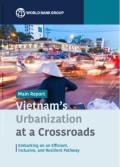
The decades of rapid economic growth in Vietnam have been accompanied by urbanization and spatial transformation. In dealing with urbanization, the country has mounted an impressive record of keeping rural–urban and regional disparities in check through the promotion of rural industrialization and central transfers aimed at poorer areas. These transfers have allowed the expansion of basic services and infrastructure. The recommendations in this report have three layers: two policy principles, two overarching strategies, and three areas of policy actions.
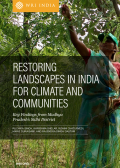
Restoring landscapes can bring economic, environmental, and social prosperity to people and the planet. In the Sidhi District of India’s Madhya Pradesh state, the opportunity is massive. By adapting the popular Restoration Opportunities Assessment Methodology (ROAM) to measure ecosystem services, livelihood benefits, land tenure, gender, and social inclusion and by mapping the social landscape, that diverse potential was uncovered.
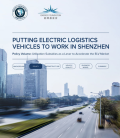
This report series—Putting Electric Logistics Vehicles to Work in Shenzhen—provides a reference point and a goal post for governments looking to reduce the health and climate impacts of freight transport in their communities. It takes a deep dive into how Shenzhen, a metropolis in Southern China, has electrified logistics vehicles and where it can make changes to accelerate that transition.
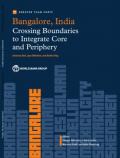
The main objective of this report is to understand how a variety of developing and emerging economies are successfully utilising horizontal integration—across multiple infrastructure sectors and systems—at the metropolitan scale to deliver greater sustainability. This report explores how integrated planning processes extending well beyond city boundaries have been financed and implemented in a diverse group of metropolitan areas.
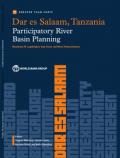
The main objective of this report is to understand how a variety of developing and emerging economies are successfully utilizing horizontal integration—across multiple infrastructure sectors and systems—at the metropolitan scale to deliver greater sustainability. This report explores how integrated planning processes extending well beyond city boundaries have been financed and implemented in a diverse group of metropolitan areas.
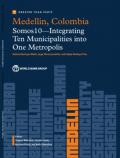
The main objective of this report is to understand how a variety of developing and emerging economies are successfully utilizing horizontal integration—across multiple infrastructure sectors and systems—at the metropolitan scale to deliver greater sustainability. This report explores how integrated planning processes extending well beyond city boundaries have been financed and implemented in a diverse group of metropolitan areas.
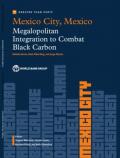
The main objective of this report is to understand how a variety of developing and emerging economies are successfully utilizing horizontal integration—across multiple infrastructure sectors and systems—at the metropolitan scale to deliver greater sustainability. This report explores how integrated planning processes extending well beyond city boundaries have been financed and implemented in a diverse group of metropolitan areas.
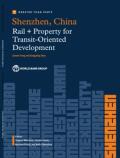
The main objective of this report is to understand how a variety of developing and emerging economies are successfully utilizing horizontal integration—across multiple infrastructure sectors and systems—at the metropolitan scale to deliver greater sustainability. This report explores how integrated planning processes extending well beyond city boundaries have been financed and implemented in a diverse group of metropolitan areas.
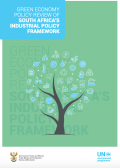
This report reviews South Africa’s industrial policy, from an inclusive green economy lens. It investigates the extent to which South Africa’s industrial policy is responding to, if not driving, the country’s transition. Building on this analysis, recommendations to foster green industrial development in South Africa can be formulated. They are split into four complementary components: capacity building; policy mainstreaming; information/data systems; and transition planning.
